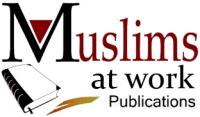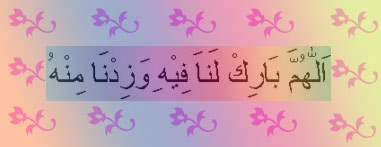
The Biography of
Muhammad Sallallahu Alaihi Wasallam
Compiled and presented by

| Lesson 15 | ||||||
|
The Prophet on the Battlefield In Makkah the threat was only from the Quraish. In Madinah, the Muslims now had to contend with danger and deception from three fronts: 1. The Quraish of Makkah The Quraish had always considered themselves a superior race and looked down upon all the other tribes. It was beyond their comprehension that the Prophet Sallallahu Alaihi Wasallam was the cause of their failure and Islam was now firmly established in Madinah. If the Prophet Sallallahu Alaihi Wasallam succeeded in his divine mission the Quraish would lose their identity and their ancient religion. Their popularity amongst the Arab tribes would slowly be reduced. Their international status as a power would be lost. Wiping out Islam from the face of the earth was their only solution. They kept a stringent watch over the Muslims left behind in Makkah and sent an ultimatum to Abdullah Ibn Ubay Ibn Sulool to expel the Prophet Sallallahu Alaihi Wasallam. They further sent threatening messages to the Muslims saying that they would put the Muslims to death in their own homeland. The whole of Madinah was now at risk of an attack. The Prophet Sallallahu Alaihi Wasallam passed many sleepless nights fearing an attack. As a precaution, volunteer guards began to patrol the city of Madinah and sometimes the Prophet Sallallahu Alaihi Wasallam himself joined them in this vigilance. Other groups were assigned to patrol the trade routes passing Madinah in order to check the movements of the Quraish. The Muslims were wise enough to know that control of these trade routes from Makkah to Syria was the perfect way of weakening the Quraishi economic stronghold. The Prophet Sallallahu Alaihi Wasallam sent out a number of campaigns with the aim of intercepting the Quraishi caravans to let the enemies know that they were now a force to be reckoned with. In Rajab 2 A.H. the Prophet Sallallahu Alaihi Wasallam delegated Abdullah Ibn Hajash Radhi Allahu Anhu with twelve other Sahabah Radhi Allahu Anhum to proceed to Nakhla, a town between Makkah and Ta’if, to gather information on the movements and evil intentions of the Quraish. Incidentally, they encountered a Quraishi trading caravan returning to Makkah. Fearing that they would come to know of their presence, Abdullah Ibn Hajash attacked the traders, killing Amr Ibn al-Hazramee and taking two of them as prisoners. They took away all their goods and returned to Madinah. When the Prophet Sallallahu Alaihi Wasallam heared of this he expressed his disapproval of the attack by the Muslims because he had not given any permission to attack in the blessed months. Allah later sent the revelation defending the Muslim attack : "They ask you concerning fighting in the sacred months. Say: Fighting therein is a great (transgression) but a greater (transgression) in the sight of Allah is to prevent from following the way of Allah, to disbelieve in Him, to prevent access to Masjidul Haraam (at Makkah) and to drive out its inhabitants. Mischief is worse than killing." (Surah Baqara, verse 217) The verse clearly explained that the Quraish had persecuted the Muslims, driven them from their homes and prevented them from worshipping Allah. This was a far worse crime than what the Muslims had done. In the meantime, the Prophet Sallallahu Alaihi Wasallam eagerly awaited Allah's command for Jihaad (religious war). The revelation finally came down in Surah Hajj : “To those against whom war is made, permission is given to fight because they are wronged. Verily, Allah is most powerful in aiding them. They are those who have been expelled from their homes unrightfully, for no reason except that they say : 'Our Lord is Allah'. If Allah did not check one set of people by means of another monasteries, churches, synagogues and masaajid, in which the name of Allah is commemorated in abundant measure, would surely have been pulled down. And Allah most certainly helps those who help His cause. Verily, Allah is All-powerful, All-mighty. Those who, if we give them power on land, they establish Salaah, they pay Zakaah, they enjoin good and forbid evil. And with Allah is the end of all things.” (Surah Hajj, verse 39 - 41) The permission for Jihaad against the disbelievers was justified for the following reasons : a. As the verse explains the
Muslims had been wrongfully attacked and persecuted.
|
||||||
Lessons to learn
|
||||||
_________________________________________ (1) As-Siba’i M., Al -Seerat an-Nabawiyyah, Karachi, n.d. p. 107-110 ____________________________________ |
||||||
Dua when drinking milk
Meaning : O Allah grant us blessings in it and increase it for us. |
Sunnah To drink any liquid in three sips is Sunnah.
|
|||||

